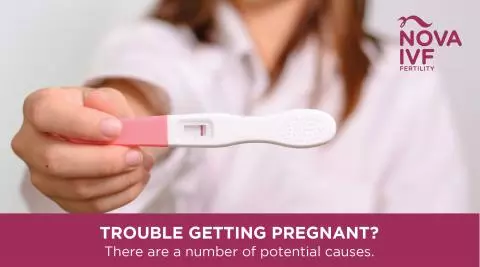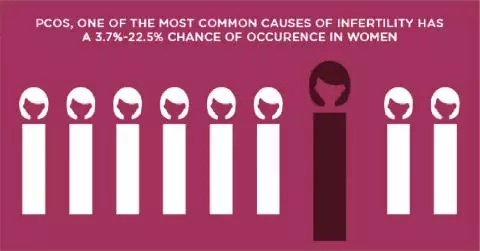Special Care for Repeated Pregnancy Failures: Treatment Options

One of the saddest events in a married couple’s life is when they discover that their longed-for pregnancy has failed. And when it happens more than once, many couples fall into utmost despair and depression. The truth is, most of them don’t need to.
Because There Is Help And There Is Hope.
It is important to understand that a single pregnancy loss is a lot more common than people think and is quite often a random event, which should not worry the couple. But, repeated failure of pregnancy is a different thing altogether and it is important to understand what the causes are.
Here Are Six Very Common Reasons For Repeated Pregnancy Failures.
Chromosomal Abnormalities
It is estimated that mismatched chromosomes account for at least 3 in 5 cases of pregnancy loss. A baby inherits one set of chromosomes from the mother and one from the father, but when one set (or both) is faulty, the chromosomes can’t line up correctly and the resulting embryo may be abnormal and thus spontaneously aborts. If a couple has suffered two or more pregnancy failures, the couple should have themselves tested for chromosomal abnormalities to rule them out.
Uterine Abnormalities And Incompetent Cervixes
Some women have an abnormally shaped or divided uterus. In such cases the fertilised embryo cannot implant (attach to the uterus wall) or if it does, it can’t get the nourishment it needs. Sometimes a woman has a weakened or incompetent cervix which is unable to hold the foetus in. These account for 1 in 10 cases. Unfortunately, this problem cannot be discovered until repeated pregnancy failure occurs and a diagnosis is made at a clinic.
Immunologic Disorders
To a woman’s body, a sperm is a foreign object and so is the fertilised egg. Unless a signal is sent through the body, the immune system can reject the sperm or the embryo. But sometimes, the immune system neither receives nor understands this message and this leads to the pregnancy failing.
Untreated Illnesses Such As Thyroid Problems And Uncontrolled Diabetes
Thyroid conditions and uncontrolled diabetes are both associated with “unfavourable” uterine environments. The effects of these conditions make it difficult for the embryo to survive. These conditions must be corrected before any further attempts to have a child happen.
Polycystic Ovarian Syndrome (PCOS)
A frequent cause of recurrent pregnancy failures, PCOS is caused when a woman produces too much testosterone – which causes irregular ovulation and menstruation. It also causes insulin resistance, which prevents the endometrial lining from maturing properly. Unfortunately, PCOS is an ever-increasing in occurrence in India. It needs treatment and proper monitoring because up to 1 in 10 failures are caused by PCOS.
Lifestyle (Cigarettes, Alcohol, Drugs, Environmental Toxins)
Aggressive smokers and drinkers are at higher risk of losing pregnancies and so are women who work in environments with a high level of toxins and pollution.
The Effective Solution To Repeated Pregnancy Failures: Infertility Treatment
Properly carried out infertility treatment such as IUI, IVF, or ICSI can make a difference to couples who have faced repeated pregnancy failures. Couples can undergo testing for chromosomal and genetic abnormalities, and the doctors can ensure that the most viable embryos are implanted in the uterus with the help of advanced technologies like PGS and PGD.
In essence, couples can benefit from the rapidly evolving science in the field of infertility treatments. And by keeping a positive frame of mind, they can rediscover hope and eventually, against all odds, experience the happiness of having their own child.
 Infertility Counselling
Infertility Counselling Female Infertility Treatment
Female Infertility Treatment Andrology Treatment
Andrology Treatment Fertility Enhancing Surgeries - Female
Fertility Enhancing Surgeries - Female Fertility Enhancing Surgeries - Male
Fertility Enhancing Surgeries - Male Endoscopy Treatment
Endoscopy Treatment IUI Treatment
IUI Treatment IVF Treatment
IVF Treatment ICSI Treatment
ICSI Treatment Advanced IVF Solutions
Advanced IVF Solutions Embryology
Embryology Vitrification Egg, Embryo, Sperm Freezing
Vitrification Egg, Embryo, Sperm Freezing Preimplantation Genetic Testing (PGT)
Preimplantation Genetic Testing (PGT) Donation Program Embryo / Egg / Sperm
Donation Program Embryo / Egg / Sperm Self-cycleTM IVF
Self-cycleTM IVF

 Self-cycleTM IVF
Self-cycleTM IVF










